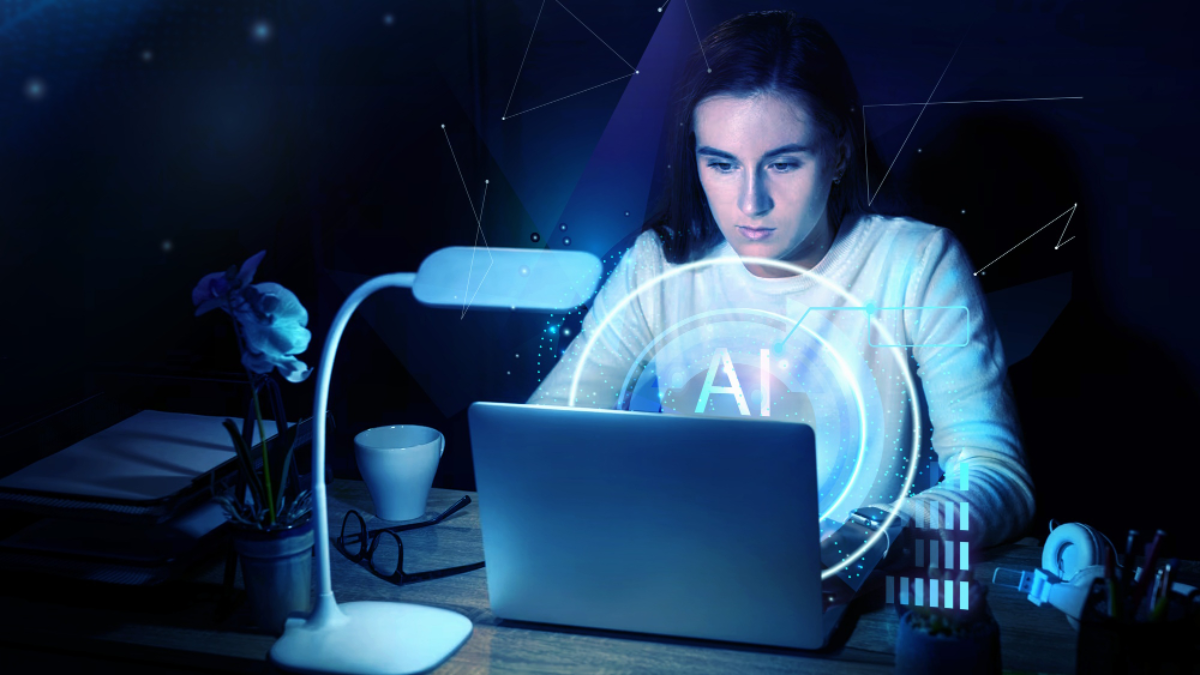AI at Work: How It’s Quietly Transforming Jobs, Tasks, and the Future of Work
Artificial Intelligence isn’t just a buzzword anymore,AI at work is already transforming how we work, often in ways we don’t immediately notice. While some headlines scream about job losses, the truth is far more nuanced. AI is creating new opportunities, simplifying processes, and changing positions. The big question isn’t whether AI is coming for your job—but how your job is changing because of it.
Microsoft’s Layoffs: Efficiency or AI-Driven Shake-Up?
Take Microsoft, for example. The tech giant recently laid off around 3% of its workforce, mostly hitting software engineers and middle managers. Officially, it’s part of a larger restructuring in response to a “dynamic marketplace.” But whispers suggest something more: With AI at work now generating up to 30% of Microsoft’s code, it’s hard not to connect the dots. Is this about trimming fat—or a glimpse of a future where machines handle more of the coding?
AI Takes the Driver’s Seat in Hiring Decisions

Microsoft isn’t alone. Other companies are leaning hard into AI:
- Shopify now requires teams to prove they’ve explored AI solutions before they can hire new people.
- Duolingo replaced many contract workers with AI-generated content, saying it’s the only way to scale efficiently.
- The CEO of Fiverr didn’t mince words when he said, “AI is coming for your job—no matter what you do.”
But before you panic, know this—backlash is building. Users are pushing back against AI-only interactions, demanding real human connection. In many cases, companies are realizing that AI can’t fully replace the warmth, nuance, and empathy of a person.
Klarna’s Surprising U-Turn: AI Plus Humans Wins
Swedish fintech company Klarna, one of the early adopters of AI at work in customer service, made headlines for a different reason—it’s adding more human agents. Why? Because clients desire the opportunity to communicate with a live person. CEO Sebastian Siemiatkowski summed it up perfectly: “AI drives efficiency, but human support will be valued even higher in an AI world.” The message is clear: the future of work is not about humans or AI—it’s about humans with AI.
The Rise of the “Agent Boss”

As AI handles more of the repetitive tasks, entirely new roles are emerging. Meet the “Agent Boss”—individuals who guide and optimize AI systems like maestros leading a symphony of digital intelligence. Think:
- Manager-Nerds orchestrating armies of AI tools to get work done smarter and faster.
- AI-HR hybrids like those at Moderna, where HR and tech teams have merged to handle AI’s growing influence on people management.
- Prompt Managers, skilled in giving AI the right instructions, editing outputs, and ensuring the results actually make sense.
These aren’t just tech jobs—they’re the new normal across every industry.
AI at Work—Right Now
AI is already handling the heavy lifting in offices, hospitals, farms, and construction sites. In New York, financial analysts are using AI tools to speed through data analysis, giving them more time for big-picture strategy. In California hospitals, AI-powered systems are streamlining patient scheduling. On farms, drones and machine learning tools are tracking crop health. Even construction firms are forecasting costs and timelines more accurately with AI support.
The common theme? Less time spent on routine tasks, more time for creativity, problem-solving, and decision-making.
Not Everyone Is Ready—Yet
It’s clear that not everyone is adapting at the same rate. Some workers are excited, treating AI as a helpful assistant. Others feel overwhelmed, afraid they’ll be left behind. The real challenge ahead? Reskilling. Those who learn to work with AI—not against it—will be the ones who thrive.
In customer service, chatbots now handle basic questions, freeing up human agents for more meaningful interactions. It’s not about replacing people—it’s about making them even more effective.
The Bottom Line: Disruption Doesn’t Mean Doom
Yes, the job market is changing. But it’s not all bad news. Some roles will shrink, others will vanish—but many more will evolve or be created. The most valuable skills in an AI-powered world? Creativity. Empathy. Leadership. Flexibility. And above all, the ability to guide, manage, and collaborate with intelligent systems.
With more than 20,000 AI-related jobs already open—and that number growing, this isn’t the end of work. It’s the beginning of something new.
So, no—AI isn’t coming for your job tomorrow. But it is changing what your job looks like today. The smartest thing you can do. Learn how to make AI your ally.

